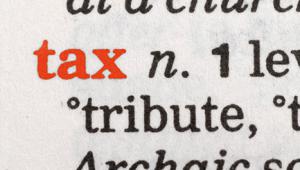In a session in the House of Commons yesterday, Toby Quantrill, principal economic justice adviser at the charity Christian Aid, said that OECD, as a rich countries’ club, could “only go so far” in including the views of developing countries in its reform plans.
The OECD has been leading a programme to consider reforms to the international tax rules in order to tackle base erosion and profit shifting (BEPS), the process by which multinational companies are able to use holes in the global tax system to shift projects to lower-tax jurisdictions.
Quantrill told the All-Party Parliamentary Group on Responsible Tax that the OECD had a great deal of expertise, but the United Nations Committee of Experts on International Cooperation in Tax Matters would be a better forum for international cooperation.
“Our proposal, and we’re open to better ones, would be to take the existing UN tax committee – which is a committee of experts but which has about one-fiftieth of the resources of the OECD – upgrade it, strengthen it and make that the place where developing countries will meet on an equal footing with all other countries,” he said.
Such a process could mirror the international structures put in place to tackle issues like climate change, Quantrill told the group, which is make up of both MPs and members of the House of Lords and supported by CIPFA.
“It isn’t an easy place to do business, we acknowledge that, but that’s because it is not easy to do businesses where everyone has a view.”
Asked by Labour peer Lord Stewart Wood whether the OECD could transition to a more global body on tax matters, Quantrill responded that, given the UN committee already existed, “why wouldn’t you use it”.
“There are genuine and real attempts to make it more inclusive, but ultimately you can only go so far,” he added.
“But we don’t discount the role of the OECD in this process. They have the technical expertise that is extremely valuable and they have extremely good people, but it is about who sets the agenda in this process, and who decides what issues are going to be dealt with.
“That is what we think matters, and that’s why we have suggested the UN, but we’re open to other options.”
The committee also heard from Bill Dodwell, a partner and lead of the tax policy group at Deloitte, who warned the changes being proposed would not fully address concerns that tax paid did by multinationals did not match where the revenues were raised.
High-profile cases in the UK, such as the low levels of corporation tax paid by Google and Facebook, have increased the calls for reform.
But Dodwell told the committee about the extent of the changes. “Let’s be clear – that if you think companies should pay tax according the location of its customers, then you’re going to be disappointed.
“This is not the outcome of the G20. I personally think that would be a foolish system to move to, not least because if you look at how many people there are in the UK, and look at the growing middle class in Brazil, India and China, if tax is going to be customer based, we’re not going to end up getting a fair return on developments in the UK.”
He said the UK would get extra tax revenues through the reform, estimated by the Treasury in the Budget Red Book as £1.3bn, which had also been signed off by the Office for Budget Responsibility.
The UK gets over £40bn in corporation tax revenues, he added, and the government has set an objective to raise this to £50bn by 2020.













